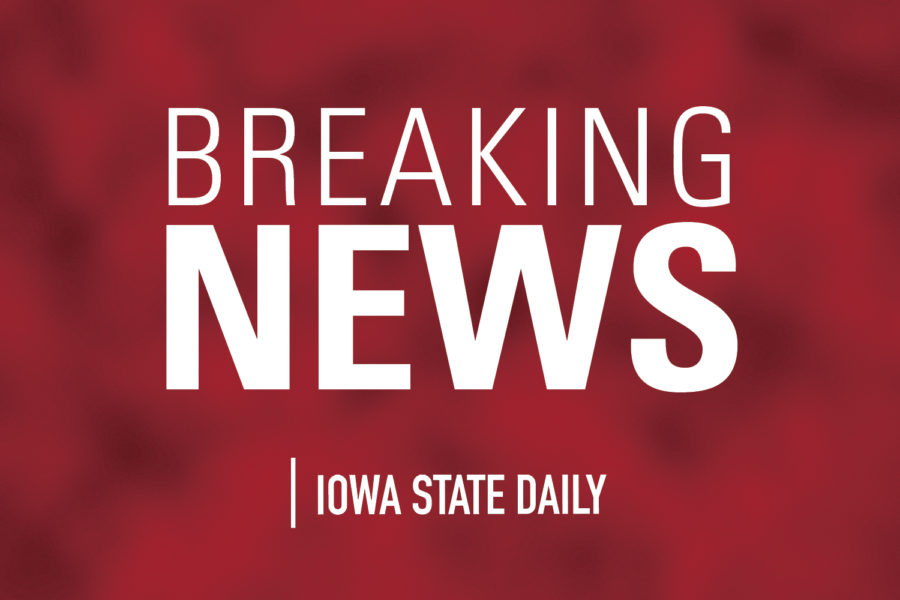85 additional cases of COVID-19 reported in Iowa
The Office of the President releases new information regarding masks, vaccinations and how the fall 2021 semester will look.
April 3, 2020
Editor’s Note: This article was updated with new information following Gov. Kim Reynolds’ 2:30 p.m. press conference.
The Iowa Department of Public Health (IDPH) has been notified of 85 additional positive cases of Iowans with COVID-19, for a total of 699 positive cases as of April 3, according to a press release from Gov. Kim Reynolds.
The press release included an update clarifying there is not a positive case in Delaware County, stating after further investigation, the case is attributed to Linn County.
According to IDPH, the locations and age ranges of the 85 individuals include:
-
Allamakee County, 1 adult (18-40 years)
-
Clayton County, 1 adult (18-40 years)
-
Clinton County, 4 middle age adults (41-60 years), 1 older adult (61-80 years)
-
Crawford County, 1 middle age adult (41-60), 2 older adults (61-80 years)
-
Dallas County, 2 older adults (61-80 years)
-
Dubuque County, 1 older adult (61-80 years)
-
Fayette County, 1 middle-age adult (41-60 years)
-
Henry County, 1 middle-age adult (41-60 years)
-
Jackson County, 1 middle-age adult (41-60 years)
-
Jasper County, 1 older adult (61-80 years)
-
Jefferson County, 1 adult (18-40 years)
-
Johnson County, 1 adult (18-40 years), 2 middle-age adults (41-60 years)
-
Linn County, 1 adult (18-40 years), 2 middle-age adults (41-60 years), 5 older adults (61-80 years), 6 elderly adults (81+)
-
Louisa County, 1 older adult (61-80 years)
-
Lyon County, 1 middle-age adult (41-60 years)
-
Marshall County, 1 adult (18-40 years)
-
Monona County, 1 elderly (81+)
-
Muscatine County, 1 adult (18-40 years), 1 middle-age adult (41-60 years), 1 older adult (61-80 years)
-
O’Brien County, 1 middle-age adult (41-60 years)
-
Plymouth County, 1 adult (18-40 years)
-
Polk County, 6 adults (18-40 years), 6 middle-age adults (41-60 years), 1 older adult (61-80 years)
-
Pottawattamie County, 1 older adult (61-80 years)
-
Scott County, 4 middle-age adults (41-60 years), 2 older adults (61-80 years)
-
Shelby County, 1 older adult (61-80 years), 1 elderly adult (81+)
-
Sioux County, 1 older adult (61-80 years)
-
Story County, 1 adult (18-40 years)
-
Tama County, 3 adults (18-40 years), 1 middle-age adult (41-60 years), 1 older adult (61-80 years)
-
Van Buren County, 1 adult (18-40 years), 1 older adult (61-80 years)
-
Warren County, 1 adult (18-40 years), 1 middle-age adult (41-60 years)
-
Washington County, 2 adults (18-40 years), 3 middle-age adults (41-60 years), 2 older adults (61-80 years)
-
Woodbury County, 1 older adult (61-80 years)
There have been a total of 8,764 negative tests to date, which includes testing reported by the State Hygienic Lab and other labs.
During her press conference, Reynolds maintained her decision to not issue a shelter in place order for Iowa. Today’s press conference follows the Iowa Board of Medicine’s unanimous recommendation earlier this morning for Reynolds to issue a shelter in place order in Iowa.
“This has become a divisive issue at a time when we must be united in our response to this crisis,” Reynolds said. “I want Iowans to understand that we have taken significant and incremental steps to mitigate the spread of the virus since we identified our first case in Iowa on March 8th.”
Reynolds said Iowa was ahead of many states in its response efforts and will continue to increase mitigation efforts based on data presented by the IDPH.
“If you did a side-by-side comparison of what we’re doing in Iowa and what other states are doing, they are much the same,” Reynolds said. “[S]tates that have implemented shelter in place orders have kept the majority of their businesses open, similar to our orders.”
Reynolds said “probably 80 to 81 percent” of Iowa’s workforce would be considered essential in a potential shelter in place order, citing Iowa’s food production jobs and the state’s role in “feeding and fueling the world” in addition to manufacturing, financial, insurance and the state workforce.
In a CNN town hall April 2, Dr. Anthony Fauci, one of the leading physicians for the White House’s coronavirus task force, said he didn’t understand why some states weren’t issuing shelter at home ordinances.
“I would think to say maybe [Fauci] doesn’t have all the information,” Reynolds said at the conference. “You can’t just look at a map and assume that no action has been taken.”
Reynolds also spoke to the potential negative effects of a shelter in place order on Iowans.
“You have to talk about mental well-being, not just physical…we are a connected community,” Reynolds said. “We work, there’s that side of it as well, in addition to suicides and domestic abuse – there are a lot of downsides to it as well.”
After announcing she would close Iowa schools through April, Reynolds said she spoke with educators across the state on April 2. She pledged to continuously re-evaluate the shutdown and said she would give “plenty of notice on what we believe is the right thing to do for the next step.”
An established public hotline for Iowans with questions about COVID-19 is available 24/7. Those with questions can call the hotline at 2-1-1 or 1-800-244-7431. The state of Iowa has started sharing the number of negative tests conducted at outside labs and is providing additional information on the conditions of those infected with COVID-19, according to the press release.







